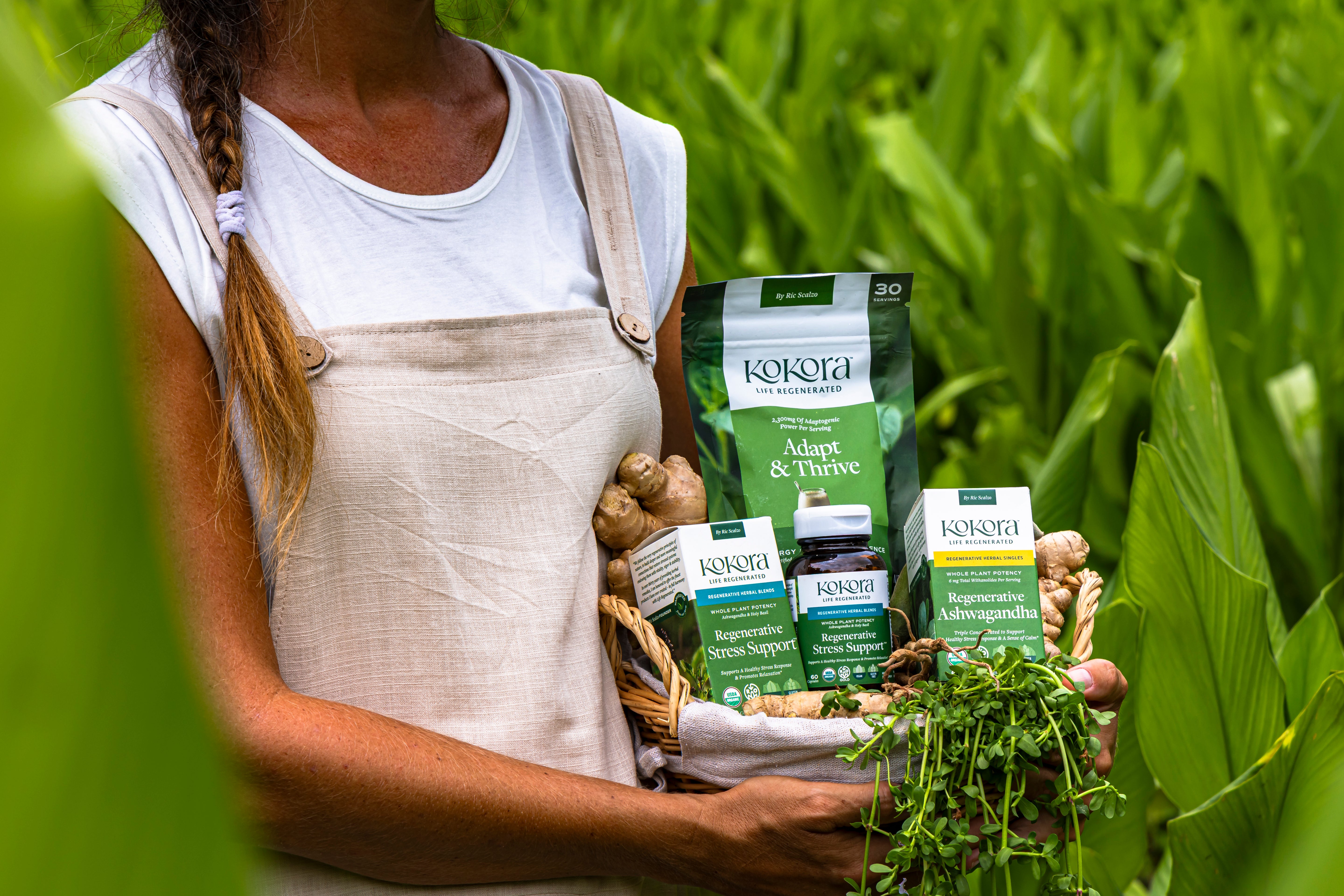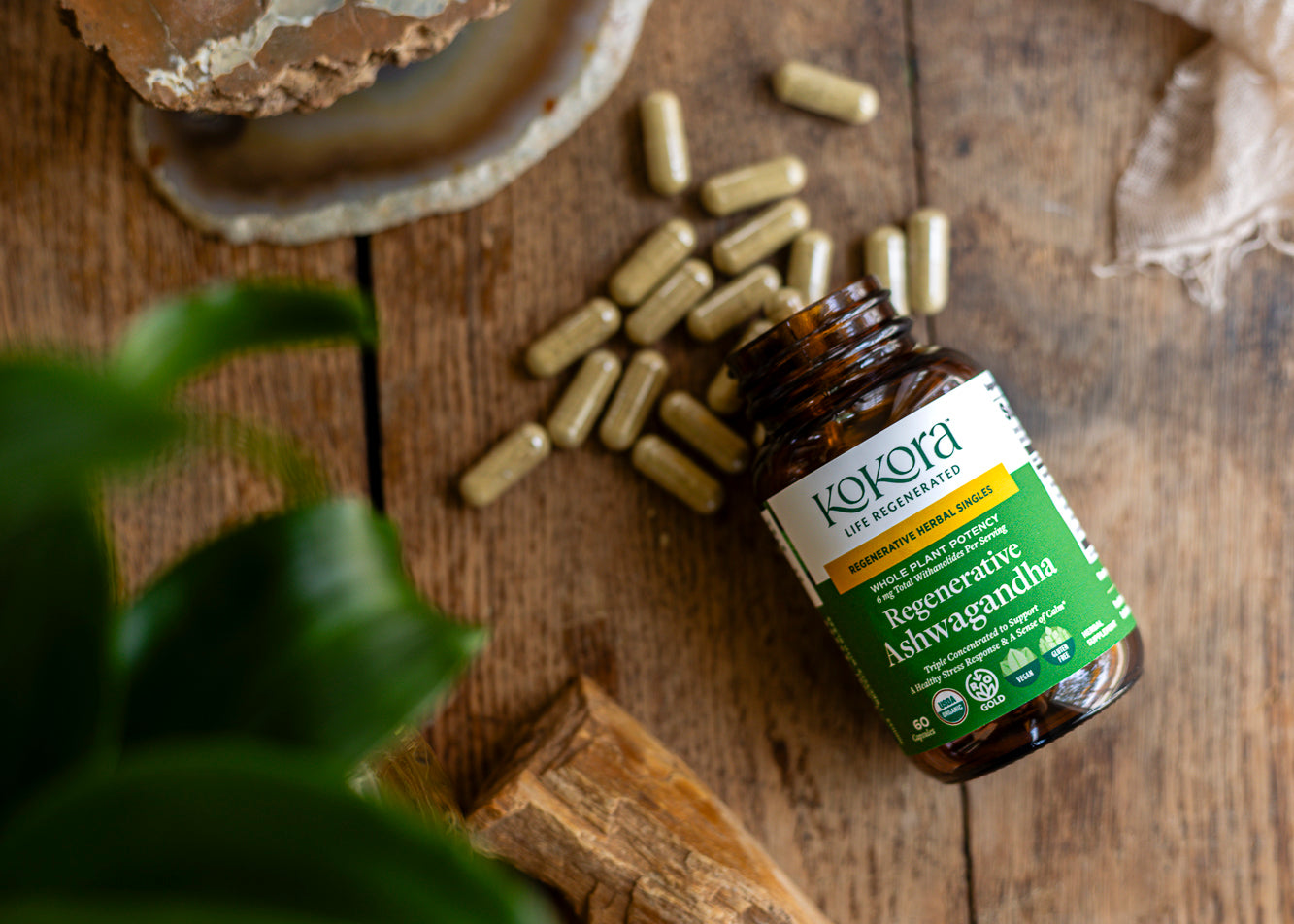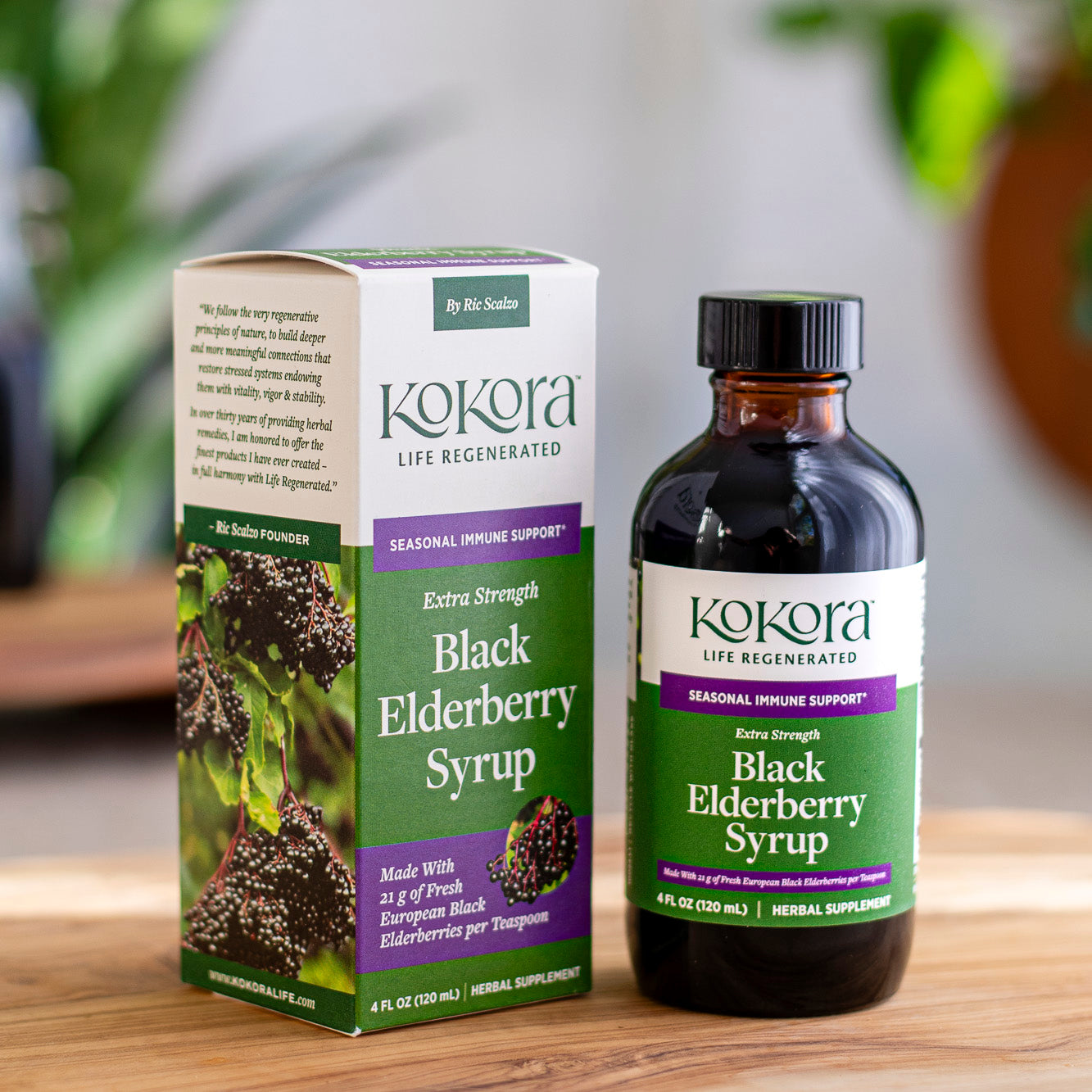Every morning provides a clean slate—a chance to start fresh, set meaningful intentions, and tend to self-care. In Ayurveda, a strong morning routine is crucial for your health and well-being. Here, we’ve laid out a morning routine that will leave you feeling nourished, energized, and renewed to begin a new day while contributing to a healthy life span.
Keep in mind: this is our ideal, full-length routine. If you’re short on time, you can pick one or two things that resonate and commit to them as a daily routine. Or, you can set aside a slow morning to do it all! There’s no right or wrong when it comes to incorporating a healthy new morning routine, and you can always make it work into your schedule.
A New Day: Begin Your Morning With Ayurveda
Step 1: Start with good oral hygiene
Ayurveda prioritizes cleaning your mouth and completing a healthy elimination to get your day going. But before you eliminate, the first thing is to ensure good oral health. After brushing your teeth, use a tongue scraper to remove the surface coating, which helps remove harmful bacteria and bad breath. Next, use coconut oil to oil pull, an Ayurvedic routine involving swishing coconut oil in the mouth for 15-20 minutes and then spitting it into a trash can. This cleansing practice helps clean the mouth and promote healthy periodontal care – as the mouth is a good indicator of overall health.
Step 2: Practice a warm sesame oil Abhyanga massage
Abhyanga, a beloved Ayurvedic technique, is a self-massage practice that helps promote lymphatic drainage and circulation, eases stress, hydrates skin, and gives the body extra love.
Here’s how to do it at home:
1. Warm up sesame oil, the key choice for winter, and begin gently massaging your scalp with the oil (there is no need to cover your entire head of hair, only your scalp).
2. Continue your oil massage down the body, starting at the forehead and face, with long outward strokes (from the nose to the ears).
3. Cover the inside and outside of your ears, down your neck, and continue with circular motions around your heart.
4. As you continue to massage down the body, focus on long strokes down your limbs and circular motions around the joints (knees and elbows).
5. Continue until you get to the soles of your feet, gently massaging with your thumbs.
6. Let the oil soak in for at least 20 minutes (self-care tip: meditate or chill out to continue your relaxing ritual).
7. Shower off when ready. Only use soap in necessary areas and pat dry, which leaves a thin layer of oil on your body for continued nourishment.
8. (Optional) Follow your Abhyanga massage with warm lemon (for Kapha doshas) or lime water (for Pitta or Vata doshas) to encourage a bowel movement.
Ayurvedic tip: If you have a Pitta constitution, are in a hot environment, or it’s summertime, opt for coconut oil instead of sesame oil for a cooling effect.
Time-saving tip: If you don’t have time to practice Abhyanga in the morning, try it in the evening for a nourishing bedtime ritual.
Step 3: Do your stretches and meditate

Now, it’s time to move your body and break up the stagnation built up during sleep—practice yoga, the eight simple chi gong movements, a restorative meridian massage, or tapping. Then, you may practice a breathwork technique (we love Uddiyana bandha).
After your practices, you’ll feel refreshed, revitalized, and ready for your day. Feel free to incorporate a meditation practice as icing on the cake if you have time. Now, you’re prepared for your breakfast!
Step 4: Eat breakfast fit for a king or queen
Not everybody loves breakfast, but in Ayurveda, it’s highly recommended.
“Your breakfast should include a little fruit like organic berries (blueberries, mulberries, blackberries, strawberries…),” says our Founder, Ric. And no, juice doesn’t count. “It’s good to avoid fruit juices in the morning because of their high sugar content.”
Pick your favorite protein, such as eggs or a vegetable-based protein, and feel free to add vegetables! “Who says you can’t have vegetables for breakfast? I always cook carrots and ginger as a part of my breakfast – there’s no law that says you can’t do that.”

What about coffee?
While there’s controversy over whether coffee is good for you or not, Ayurveda says it depends on your dosha. To learn more about the doshas in general, explore this helpful article.
“If you’re more kapha-oriented, one cup of coffee may be great for you in the morning,” says Ric. “But make sure you don’t add sugar and opt for nut milk instead of heavy cream.”
Coffee is typically too heating for the body for Pitta dosha types and unsettling for Vata types – so finding an alternative is the smartest option.

A Healthy Coffee Alternative: Roasted Kokora Lift™
Those who struggle to tolerate coffee or want to cut down can look to this delicious, health-packed beverage that resembles coffee's flavor and consistency—without the adverse effects, like digestive upset or jitters. The magic lies in the roasted Chicory and Dandelion, similar to the roasted taste of coffee. These two herbs also provide inulin, a prebiotic fiber that helps feed beneficial gut bacteria.
Roasted Kokora Lift™ also contains three beneficial mushroom fruiting body extracts for immune and stress support* and is formulated with Ashwagandha, Cacao, and Cinnamon. And the best part? It supports balanced energy but has ZERO caffeine.
Ready to change up your morning routine? Try our Roasted Kokora Lift™ and save 15% on your first order when you sign up for emails.
*These statements have not been evaluated by the Food and Drug Administration. This product is not intended to diagnose, treat, cure, or prevent any disease.
Read more

Taste the rainbow with this colorful, nutritious white bean salad recipe straight from Italy!

Explore these six Japanese techniques for living well — resulting in greater happiness, success, and contentment in life.






